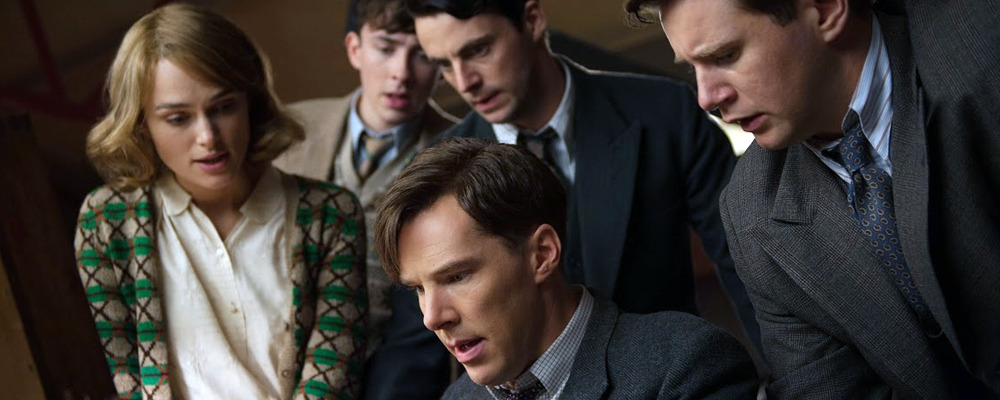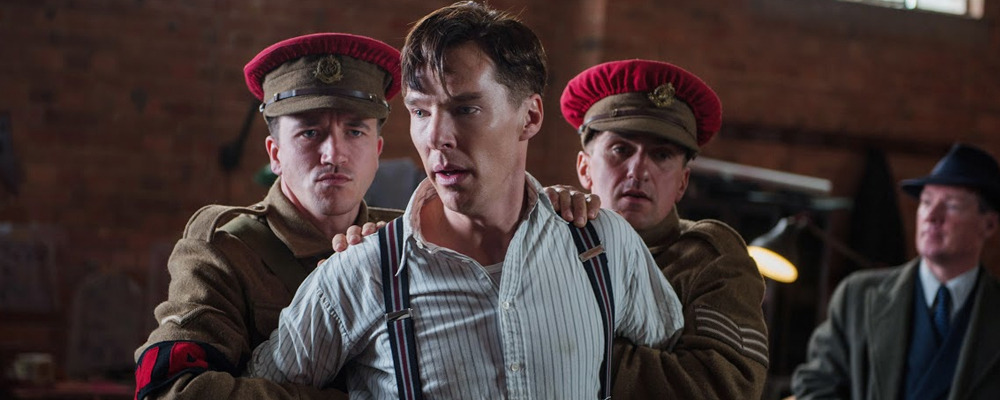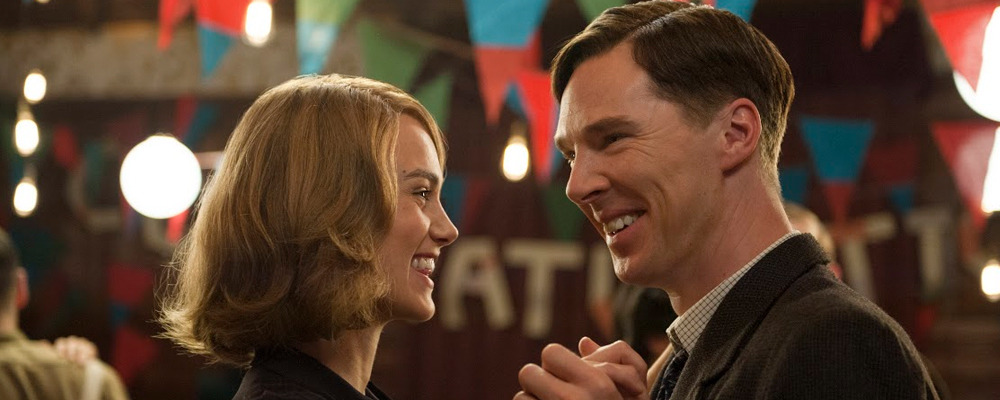Keira Knightley is an Original in ‘The Imitation Game’
John Scura
One of the most closely guarded secrets of the Second World War was the brilliant breakthrough in cracking the German “Enigma” code, thought to be unbreakable. It was achieved by a team of British mathematicians along with a motley collection of puzzlers, linguists, chess champs and scholars who were sequestered in a Buckinghamshire mansion called Bletchley Park. What they achieved definitely shortened the war and brought about the defeat of Nazism, and the central figure in this achievement, Alan Turing—credited with pioneering the modern day computer—wound up dying in a British prison on charges of homosexuality. How could this happen?
His story is the thrust of the new Weinstein Company film, “The Imitation Game,” which stars Benedict Cumberbatch as Turing and Keira Knightley as Joan Clarke, the young Cambridge mathematics graduate who joined the code breaking team after winning a national crossword-solving contest.
“One day we thought we should really be good with crosswords, so we brought in a quick crossword [puzzle],” Keira explains. “It took five of us five days, and we still didn’t finish it.” The award-winning actress also pokes fun at her attempt to understand what Joan Clarke knew of mathematical theories. “I did about three weeks of reading,” she says, “and two weeks were spent trying to understand what any of the theories were. I got other books and I didn’t understand a word. I don’t think I’m the most intelligent person, but I’m not thick. Still I could not make head or tail of it. They [the producers] even really sweetly got some lovely people in to give us talks and all of us sat there being actors and going, ‘Yeah, yeah,’ making notes like, ‘Yeah, absolutely, absolutely.’ And they’d leave and we’d be like [whispers], ‘Did you understand any of that?’ ‘Not a word!’ ‘OK, fine, we’ll fake it.’ So we faked it.”
There is nothing fake about Keira’s portrayal of Joan Clarke, the person, however. The actress studied all of the available information she could find. “There was an interview which she gave which was online,” Keira reveals. “She was probably in her mid-70s or late 70s. She came off as a very nice, very feminine type person. I thought that was very interesting. I liked the idea that she was absolutely somebody who was breaking boundaries in her own right, but she didn’t go about it like a bull in a china shop. She was fighting for a place at the table and equal pay, which still are today the two main things that feminists are fighting for. And also I sensed the great friendship and love that existed between her and Alan [Turing]. You could really feel that in the interview that I saw. She was so protective of him.”
The film opens in 1952 when Turing, his monumental achievement still a closely kept secret by the British government, is beset by authorities responding to a burglary report in his home. They instead arrest Turing on charges of “gross indecency”—an accusation that would lead to his eventual conviction and imprisonment for homosexuality. When the film goes back to the code breaking days during the war, the relationship between Turing and Clarke becomes the centerpiece.
“Alan and Joan were great friends,” says Keira. “There was a moment when he thought he could be married to a woman and be ‘normal,’ whatever that means. Maybe it could have worked out.”
‘The Imitation Game’ was not lavishly financed, which is a departure from many of Keira Knightley’s previous projects, but she maintains that it was a welcome change. “I think what’s nice about doing very low budget films is that you really just have to hit the ground running and go-go-go, so you’re so exhausted by the end of it that you just kind of sleep for a week. And then you wake up and go, ‘Right, don’t even remember what happened there.’”
Based on her performance, audiences will not find it hard to remember Keira Knightley in this film.
“The Imitation Game” arrives in theaters on Nov. 28.



